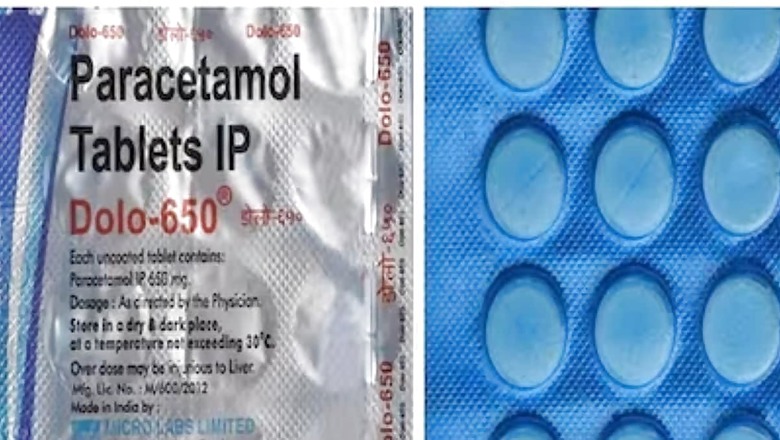
views
The Central Drugs Standards Control Organisation (CDSCO) recently listed paracetamol among 53 other drugs as “Not of Standard Quality (NSQ).”
If Paracetamol is your go-to medicine for cold, cough and mild fever, it may be time to look for an alternative. The Central Drugs Standards Control Organisation (CDSCO) recently listed paracetamol among 53 other drugs as “Not of Standard Quality (NSQ).” Every household has a bunch of Paracetamol strips in their medicine box to deal with cough, cold, and fever. While it’s been a widely used over-the-counter medication around the world for decades, recent quality control failures have raised concerns about its safety and efficacy.
As per the NSQ alert for August, released by India’s drug regulation authority CDSCO, over 50 drugs have been declared NSQ or substandard. These alerts are the results of random sampling done by state drug officers every month. Besides Paracetamol, drugs like vitamin C and D3 tablets, Shelcal, vitamin B complex, vitamin C soft gels, antacid Pan-D, glimepiride, and the high blood pressure drug Telmisartan have also been flagged for failing quality tests in the latest monthly drug alert list.
So if not Paracetamol then what can we take? Consultant Intensive and Critical Care Specialist Dr Minesh Mehta suggests Ibuprofen, Diclofenac, Meprocin, Meftal, and Nimesulide as alternatives during an interview with Hindustan Times.
Ibuprofen: Similar to paracetamol, Ibuprofen treats pain and can also be used to treat fever symptoms. It is a type of drug called a non-steroidal anti-inflammatory (NSAID) that reduces inflammation.
Nimesulide: The National Institute of Health, in its report, mentioned that Nimesulide was as effective as paracetamol in reducing fever, general discomfort, and local pain.
Diclofenac: According to research by the National Institute of Health, Diclofenac was found more effective than paracetamol for reducing pain intensity and frequency, especially after deep cavity preparations and dental extractions.
You can also add natural remedies to your sick day routines that work wonders in the recovery process and are easily available in your kitchen. Let’s have a look at a few home remedies that are helpful at times when cold and cough come knocking at your door.
Warm liquids: Drinking plenty of fluids, like water, herbal teas, and soups helps keep the body hydrated as well as ease sore throats. Ginger or peppermint tea may help soothe discomfort and promote sweating, which can aid in cooling the body.
Steam: Take boiling hot water in a pan and add your preferred essential oil to it. Lean over the bowl with a towel over your head for a minimum of 10 minutes, inhaling the steam. This helps reduce coughing and can be used to clean a blocked nose.
Wet Cloth: If you are down with a fever, apply a cool, damp cloth to the forehead, wrists, or neck. This home remedy can provide relief and help lower body temperature. Taking a lukewarm bath can also help bring down a fever gently.
Adequate Rest: Ensure to take adequate rest, which will help the body fight off infections, which often tend to be the underlying cause of fever.
Turmeric milk: Drinking turmeric milk or haldi doodh, as known in Indian households, can also relieve you from cold and body aches. Known for its anti-inflammatory properties, turmeric may help alleviate pain and bring fever down.




















Comments
0 comment